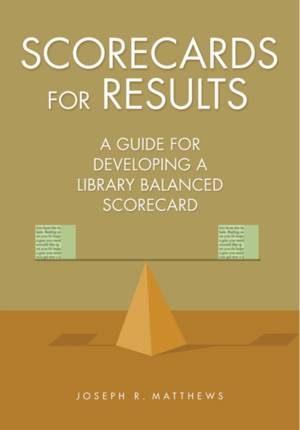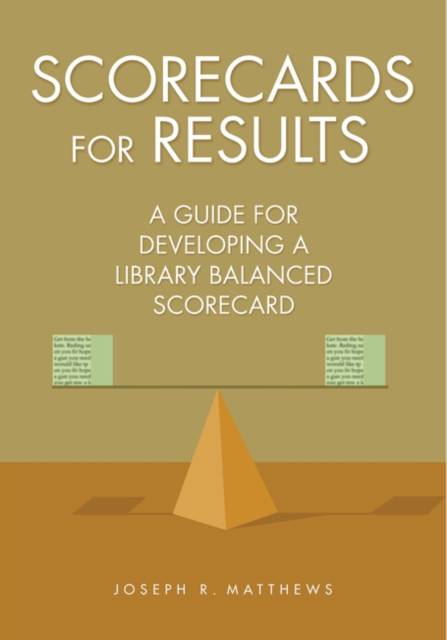
- Retrait gratuit dans votre magasin Club
- 7.000.000 titres dans notre catalogue
- Payer en toute sécurité
- Toujours un magasin près de chez vous
- Retrait gratuit dans votre magasin Club
- 7.000.0000 titres dans notre catalogue
- Payer en toute sécurité
- Toujours un magasin près de chez vous
Scorecards for Results
A Guide for Developing a Library Balanced Scorecard
Joseph MatthewsDescription
Baseball fans have long appreciated the value of keeping a scorecard, both as a record of the game and a predictor of future outcomes. What if we told you the same principle works for libraries?
The Balanced Scorecard is a performance measurement tool first popularized by Robert Kaplan and David Norton (who also penned the foreword to this book) in a 1993 Harvard Business Review article. It involves matching a variety of measures with one or more expected values--from each of four perspectives (financial, customer, internal process, and organizational readiness)--tracking results, and analyzing any variance between them. As in baseball, organizations come away with both a snapshot of the present and a sense of where they are headed.
Evaluation expert Joe Matthews has taken this basic model and, in six carefully illustrated steps, shows how any public library, regardless of size, can more effectively focus its resources, assess strategic impact, and in so doing better serve its community.
Spécifications
Parties prenantes
- Auteur(s) :
- Editeur:
Contenu
- Nombre de pages :
- 132
- Langue:
- Anglais
Caractéristiques
- EAN:
- 9781591586982
- Date de parution :
- 01-06-08
- Format:
- Livre broché
- Format numérique:
- Trade paperback (VS)
- Dimensions :
- 179 mm x 249 mm
- Poids :
- 285 g

Les avis
Nous publions uniquement les avis qui respectent les conditions requises. Consultez nos conditions pour les avis.






